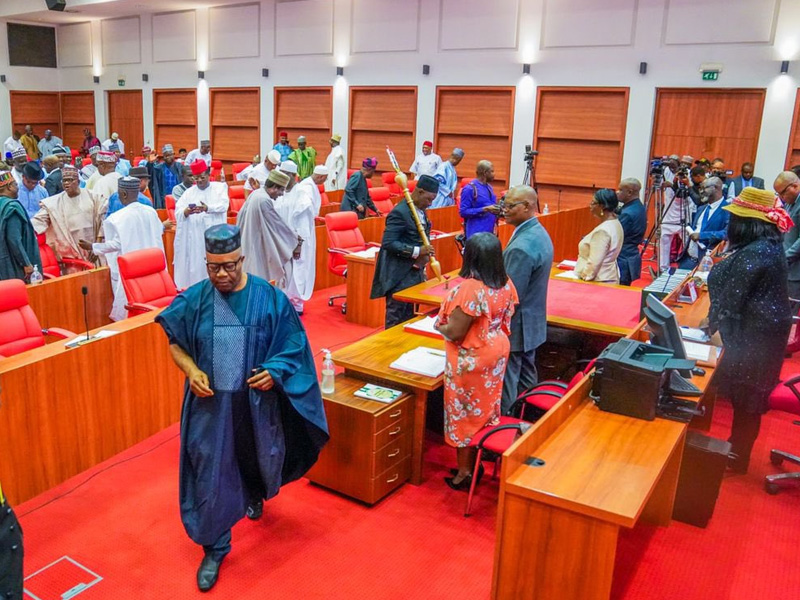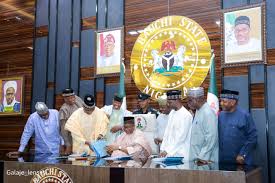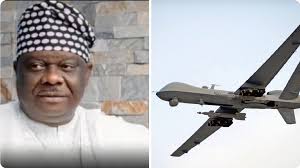
The Senate has announced plans to engage the federal government to develop a coordinated counter-terrorism and diplomatic strategy following a proposed bill in the United States seeking imposition of sanctions on Nigerian officials accused of religious persecution.
The upper chamber, presided by Senate President Godswill Akpabio, also on Thursday, dismissed as false and divisive allegations by US Senator Ted Cruz and television host Bill Maher that Nigeria was witnessing a “Christian genocide”.
The Nigerian lawmakers described the narrative as dangerous misinformation capable of threatening Nigeria’s unity and international reputation.
The debate in the senate followed a motion, titled, “Urgent Need to Correct Misconceptions Regarding the Purported ‘Christian Genocide’ Narrative in Nigeria and International Communities,” sponsored by Senator Mohammed Ali Ndume (Borno South) and co-sponsored by several senators, including Sani Musa (Niger East), Magatakarda Wamakko (Sokoto North), Ibrahim Bomai (Yobe South), and Ahmed Wadada (Nasarawa West).
The senate also considered broader implications of the Nigeria Religious Freedom Accountability Act of 2025, currently before the US Congress.
The proposed legislation seeks to sanction Nigerian officials, allegedly, complicit in religious persecution, re-designate Nigeria as a “Country of Particular Concern,” and penalise those enforcing Sharia or blasphemy laws.
In their contributions, senators across party and religious divides unanimously rejected the premise of the US bill, describing it as a gross misrepresentation of Nigeria’s complex security realities.
They stressed that insecurity in the country was not religion-driven, but a product of terrorism, banditry, and criminality.
Ndume, while leading debate on the motion, said the claims by Cruz and Maher were “baseless and misleading,” arguing that they failed to acknowledge that terrorism in Nigeria targets all citizens, regardless of faith.
He said the senate must take the lead in defending the country’s image and supporting government efforts to combat extremism.
Co-sponsor of the motion, Wamakko, denounced the genocide narrative as “outright misinformation aimed at destroying our nation”.
He said, “This misinformation cannot continue like this. We must take decisive steps to address this issue and defend our country’s integrity.”
Similarly, Senator Suleiman Kawu Sumaila (NNPP, Kano South) expressed concern that the misinformation could fuel sectarian tension and damage diplomatic ties.
Sumaila said, “It is shocking that such a bill could emanate from a respected parliament like the US Congress. In my constituency, Christians and Muslims coexist peacefully. The claim that 100 churches are burnt every month in Nigeria is false and mischievous.”
He added that both Christians and Muslims had suffered heavy casualties from terrorism.
“In Borno, Kaduna, and Kano, hundreds of Muslims have also been killed. Terrorism in Nigeria does not discriminate, it kills Christians and Muslims alike,” Sumaila stated.
He warned that the passage of the US bill would unfairly criminalise Nigerian leaders, deepen mistrust, and worsen the country’s security challenges.
Sumaila declared, “We must take decisive steps to correct this false narrative and show the world that Nigeria is not a nation at war with itself along religious lines.”
Senator Jimoh Ibrahim (APC, Ondo South), who holds a Ph.D. in War Studies, urged the senate to adopt a knowledge-based approach to security management.
Ibrahim advocated a comprehensive review of Nigeria’s counter-terrorism framework and called for an executive session to deliberate on effective national and diplomatic responses.
He said, “We need to understand the tactics and praxis of the terrorists before recommending the right counterterrorism approach.
“This is not about Christians or Muslims. It is about understanding how to defeat terror in all its forms.”
In his remarks, Akpabio commended the robust and non-partisan debate, describing the US bill as a “one-sided narrative” that distorts Nigeria’s security situation. He stressed that terrorism in Nigeria affected people of all faiths and regions.
Akpabio stated, “When terrorists attack, they don’t ask if their victims are Christians or Muslims. In Borno, Benue, Kaduna, and the South-east, Nigerians of all backgrounds have lost their lives. This is a national tragedy, not a religious war.”
The senate president cautioned that sanctions could aggravate economic hardship and undermine Nigeria’s stability.
He stated, “Sanctions breed poverty, and poverty knows no religion.
“Therefore, engagement, not confrontation, should be our response.”
Akpabio proposed that the senate should collaborate with the Ministry of Foreign Affairs, National Security Adviser’s office, and the presidency to craft a comprehensive counter-terrorism and diplomatic strategy.
He also suggested that a high-level Senate delegation visit the US Congress to present Nigeria’s perspective and correct the misconceptions.
Senate Leader, Opeyemi Bamidele (APC, Ekiti Central), thereafter moved a motion for the adoption of the senate’s collective position that insecurity in Nigeria was not religion-driven.
Bamidele proposed that further legislative action be deferred until after an executive session slated for next Tuesday.
He said, “Our resolution today is that the senate totally supports this motion and affirms that insecurity in Nigeria is not religion-driven. We should meet in executive session next week to fashion out a comprehensive national response.”
His motion was seconded by Senator Abdul Ningi (PDP, Bauchi Central), who emphasised that the issue should be approached as a matter of national security rather than religion.
Following a unanimous voice vote, the senate adopted the resolution to hold a closed-door session next week to deliberate on Nigeria’s counter-terrorism approach and diplomatic engagement with the US Congress.
Summing up the debate, Akpabio reaffirmed the senate’s commitment to defending Nigeria’s sovereignty and promoting unity.
He said, “Nigeria is a multi-ethnic, multi-religious society. Our diversity should be our strength, not our weakness.
“We will engage, educate, and correct the wrong perceptions. This senate will stand united to defend Nigeria’s integrity and promote peace among all its citizens.”
Sunday Aborisade



